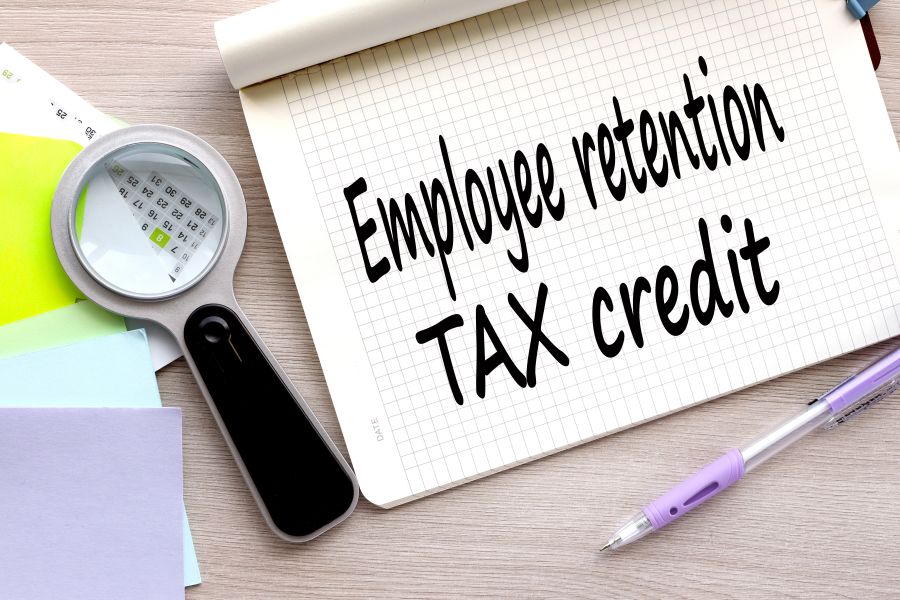Let’s say you own real estate that has been held for more than one year and is sold for a taxable gain. Perhaps this gain comes from indirect ownership of real estate via a pass-through entity such as an LLC, partnership or S corporation. You may expect to pay Uncle Sam the standard 15% or 20% federal income tax rate that usually applies to long-term capital gains from assets held for more than one year. However, some real estate gains can be taxed at higher rates due to depreciation deductions. Here’s a rundown of the federal income tax issues that might be involved in real estate gains. Vacant land The current maximum federal long-term capital gain tax rate for a sale of vacant land is 20%. The 20% rate...

As appearing in IR-2024-198 Businesses urged to proactively resolve erroneous claims to avoid penalties, interest, audits As the Internal Revenue Service intensifies work on the Employee Retention Tax Credit (ERTC), the agency today shared five new warning signs being seen on incorrect claims by businesses. The new list comes from common issues the IRS compliance teams have seen while analyzing and processing ERTC claims. The new items are in addition to seven problem areas the IRS previously highlighted. The IRS urged businesses with pending claims to carefully review their filings to confirm their eligibility and ensure credits claimed don’t include any of these 12 warning signs or other mistakes. Businesses with these indicators should talk to a trusted tax professional and consider using special ERTC Withdrawal Program that remains available. Business considering...
As appearing in IR-2024-203 Agency accelerates work on complex credit as more payments move into processing. Vigilance, monitoring continues on potentially improper claims On 8/8/24, the Internal Revenue Service announced additional actions to help small businesses and prevent improper payments in the Employee Retention Tax Credit (ERTC) program, including accelerating more payments and continuing compliance work on the complex pandemic-era credit that was flooded with claims following misleading marketing. The IRS is continuing to work denials of improper ERTC claims, intensifying audits and pursuing civil and criminal investigations of potential fraud and abuse. The findings of the IRS review, announced in June, confirmed concerns raised by tax professionals and others that there was an extremely high rate of improper ERTC claims in the current inventory of ERTC claims. In...
Get ready: The upcoming presidential and congressional elections may significantly alter the tax landscape for businesses in the United States. The reason has to do with a tax law that’s scheduled to expire in about 17 months and how politicians in Washington would like to handle it. How we got here The Tax Cuts and Jobs Act (TCJA), which generally took effect in 2018, made extensive changes to small business taxes. Many of its provisions are set to expire on December 31, 2025. As we get closer to the law sunsetting, you may be concerned about the future federal tax bill of your business. The impact isn’t clear because the Democrats and Republicans have different views about how to approach the various provisions in the TCJA. Corporate and pass-through business...
Most businesses have websites today. Despite their widespread use, the IRS hasn’t issued formal guidance on when website costs can be deducted. But there are established rules that generally apply to the deductibility of business expenses and provide business taxpayers launching a website with some guidance about proper treatment. In addition, businesses can turn to IRS guidance on software costs. Here are some answers to questions you may have. What are the tax differences between hardware and software? Let’s start with the hardware you may need to operate a website. The costs fall under the standard rules for depreciable equipment. Specifically, for 2024, once these assets are operating, you can deduct 60% of the cost in the first year they’re placed in service. This favorable treatment is allowed...
While many facets of the economy have improved this year, the rising cost of living and other economic factors have caused many businesses to close their doors. If this is your situation, we can help you, including taking care of various tax responsibilities. To start with, a business must file a final federal income tax return and some other related forms for the year it closes its doors. The type of return that must be filed depends on the type of business you have. For example: Sole Proprietors will need to file the usual Schedule C, “Profit or Loss from Business,” with their individual returns for the year they close their businesses. They may also need to report self-employment tax. Partnerships must file Form 1065, “U.S. Return...
(As appearing in IR 2024-186) IRS reminds car dealers and sellers to be aware of phishing scams In light of the CDK ransomware attack, the Internal Revenue Service would like to remind car dealers and sellers to be aware of evolving phishing and smishing scams that could impact day-to-day operations of the business. In light of the recent ransomware attack against CDK, the IRS is warning individuals and businesses to remain vigilant against these attacks. Fraudsters and identity thieves attempt to trick the recipient into clicking a suspicious link, filling out personal and financial information or downloading a malware file onto their computer. Scammers are relentless in their attempts to obtain sensitive financial and personal information, and impersonating the IRS remains a favorite tactic. The IRS urges car dealerships...
Are you buying a business that will have one or more co-owners? Or do you already own one fitting that description? If so, consider installing a buy-sell agreement. A well-drafted agreement can do these valuable things: Transform your business ownership interest into a more liquid asset, Prevent unwanted ownership changes, and Avoid hassles with the IRS. Agreement basics There are two basic types of buy-sell agreements: Cross-purchase agreements and redemption agreements (sometimes called liquidation agreements). A cross-purchase agreement is a contract between you and the other co-owners. Under the agreement, a withdrawing co-owner’s ownership interest must be purchased by the remaining co-owners if a triggering event, such as a death or disability, occurs. A redemption agreement is a contract between the business entity and its co-owners (including you). Under...
If you’re selling property used in your trade or business, you should understand the tax implications. There are many complex rules that can potentially apply. To simplify this discussion, let’s assume that the property you want to sell is land or depreciable property used in your business, and has been held by you for more than a year. Note: There are different rules for property held primarily for sale to customers in the ordinary course of business, intellectual property, low-income housing, property that involves farming or livestock, and other types of property. Basic rules Under tax law, your gains and losses from sales of business property are netted against each other. The tax treatment is as follows: If the netting of gains and losses results in a net...
If you own a closely held corporation, you can borrow funds from your business at rates that are lower than those charged by a bank. But it’s important to avoid certain risks and charge an adequate interest rate. Basics of this strategy Interest rates have increased over the last couple years. As a result, shareholders may decide to take loans from their corporations rather than pay higher interest rates on bank loans. In general, the IRS expects closely held corporations to charge interest on related-party loans, including loans to shareholders, at rates that at least equal applicable federal rates (AFRs). Otherwise, adverse tax results can be triggered. Fortunately, the AFRs are lower than the rates charged by commercial lenders. It can be advantageous to borrow money from your...











